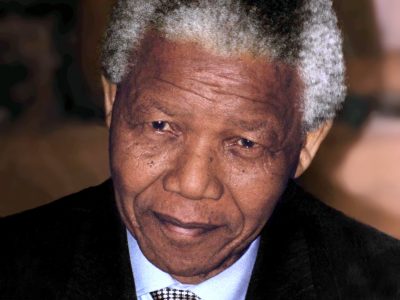Nelson Mandela, an anti-apartheid revolutionary, political leader, and philanthropist left an indelible mark on the world through his resilient journey to freedom and equality in South Africa. From his early life, throughout his long imprisonment and eventual release, Mandela continued to inspire millions with his unwavering determination to establish a fair and just society.
Early life
Nelson Mandela was born on 18 July 1918 in Mvezo, a small village in the Umtata district of South Africa. Born as Nelson Rolihlahla Mandela and known by his clan name, Madiba, he was raised by his maternal family in Qunu after his father’s death. Mandela completed his early education at a local missionary school before enrolling at Healdtown Comprehensive School for secondary studies. He later attended Fort Hare University to study law, where he first encountered political activism.
Imprisonment
In 1943, Mandela joined the African National Congress (ANC) party, intending to fight the systemic racism embedded in South Africa’s apartheid regime. He organised various protests and influenced people from all walks of life to join the struggle for racial equality. However, this led to his eventual arrest in 1962 for incitement and attempting to leave the country illegally. Two years later, he was convicted again on charges related to sabotage, which culminated in a life sentence, this time being imprisoned on Robben Island.
Nelson Mandela served a total of 27 years – first on Robben Island before being transferred to Pollsmoor Prison and later Victor Verster Prison. Despite difficult living conditions and hard manual labour, Mandela continued to advocate for racial equality behind bars.
Release and political achievements

On 11 February 1990, due to growing international pressure against apartheid regulations and South Africa’s declining political stability, President F.W. de Klerk released Nelson Mandela from prison. His release marked the beginning of a new era in South African politics.
In 1993, Mandela and President F.W. de Klerk were awarded the Nobel Peace Prize for their collaborative efforts to dismantle apartheid and establish multi-racial elections. Following the first-ever democratic election in 1994, Nelson Mandela became South Africa’s first black president, serving from 1994-1999.
During his presidency, Mandela focused on reconciliation between the country’s racial groups, implementing policies to encourage national unity and economic growth to heal the nation’s wounds from the apartheid era. After retiring from politics, Mandela continued to contribute to society’s betterment through his foundation and numerous charitable works.
On 5 December 2013, Nelson Mandela passed away peacefully, surrounded by his family.
Honours

Mandela has been bestowed with numerous honours and accolades for his extraordinary contributions to civil rights and humanity. These include honorary citizenships, statues, streets named in his honour, and international prizes such as the United Nations naming of 18 July as ‘Nelson Mandela International Day,’ recognising his lifetime achievements in promoting global peace and freedom.
Nelson Mandela’s unwavering dedication to justice, freedom, and human dignity inspires millions worldwide today. His life is a testament to the power of resilience and perseverance in the face of adversity. This legacy will carry on for generations to come.





